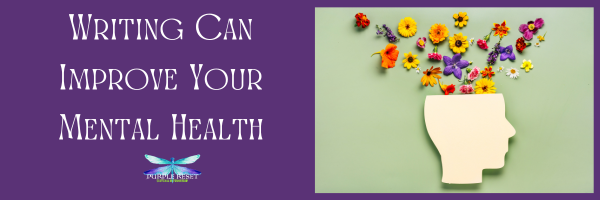Your cart is currently empty!
The Science of Journaling: How Writing Can Improve Your Mental Health

In a world that often feels chaotic and overwhelming, finding a simple, effective way to improve your mental health can feel like discovering a hidden treasure. Journaling is one such tool. While it might seem like just putting pen to paper, science shows that journaling is far more than that, it’s a powerful practice with tangible mental health benefits.
From reducing stress and anxiety to boosting self-awareness and emotional regulation, journaling can transform the way you think, feel, and approach life. Let’s dive into the science behind journaling and explore why it’s a game-changer for mental health.

What Happens in Your Brain When You Journal?
Writing engages multiple regions of the brain, including those responsible for emotion regulation, problem-solving, and memory. Here’s how it works:
- Processing Emotions: Journaling activates the prefrontal cortex, the part of the brain that helps regulate emotions. Writing about your feelings can reduce activity in the amygdala (the brain’s “fear center”), helping to lower anxiety and stress.
- Creating Clarity: Writing forces you to slow down and organize your thoughts. This process engages the brain’s left hemisphere, which is analytical and logical, while freeing up the right hemisphere to process emotions and intuition.
- Strengthening Memory: Journaling helps consolidate memories by reinforcing neural pathways, making it easier to recall past events and lessons learned.
The Proven Benefits of Journaling for Mental Health
1. Reduces Stress
Journaling is like a mental detox. Research shows that expressive writing—writing freely about your thoughts and feelings, can significantly reduce stress levels. By putting your worries on paper, you offload mental clutter and gain a sense of relief.
Try This: Write down everything that’s stressing you out. Don’t censor yourself, just let it flow. Once you’re done, write one small action you can take to address each stressor.
2. Decreases Symptoms of Anxiety and Depression
Journaling helps you process difficult emotions and challenge negative thought patterns. Cognitive-behavioral journaling, for instance, involves identifying distorted thoughts (like catastrophizing or black-and-white thinking) and reframing them into more balanced perspectives.
Try This: Write down a worry or negative thought. Then, ask yourself:
- Is this thought 100% true?
- What evidence do I have to support or challenge it?
- What’s a kinder, more constructive way to view this situation?
3. Boosts Self-Awareness
Regular journaling fosters self-awareness by encouraging you to reflect on your thoughts, behaviors, and feelings. This increased awareness can help you better understand yourself and make choices that align with your values.
Try This: At the end of each day, write about a moment that made you feel proud, grateful, or happy. Reflect on what it reveals about your priorities and values.
4. Enhances Emotional Regulation
Writing about your emotions helps you process and regulate them. Studies show that journaling about challenging experiences can reduce their emotional intensity, making it easier to cope with difficult situations.
Try This: When you feel overwhelmed, write a letter to yourself from the perspective of a supportive friend. What would they say to comfort and encourage you?
5. Improves Problem-Solving Skills
Journaling helps you untangle complex problems by breaking them into manageable pieces. It encourages creative thinking and helps you brainstorm solutions you might not have considered otherwise.
Try This: Write about a current challenge. List all possible solutions, no matter how small or unconventional. Then, choose one to try first.
Tips for Making Journaling a Sustainable Habit
- Start Small: You don’t need to write pages every day. Even five minutes can make a difference.
- Be Honest: Journaling is your safe space. Write without judgment or fear of criticism.
- Experiment with Styles: From gratitude lists to bullet journaling to freewriting, there’s no “right” way to journal. Find what works for you.
Ready to start your journaling journey? Explore my collection of thoughtfully designed journals to help you make the most of your practice. Whether you’re a beginner or a seasoned journaler, there’s a perfect journal waiting for you. Let’s write your way to clarity, calm, and growth! If you are interested in finding our why I started Purple Reset you can read all about it here. If you want to join a journaling community join me on Facebook and/or message to join my Journaling Whatsapp group
